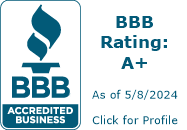Personal Credit and MoneyMax Plan Accounts for Business Owners
Personal Credit and MoneyMax Accounts for Business Owners
Quick Facts:
Interest rates are tied to your credit score
A strong personal credit score is essential for small business owners
FICO is the most common scoring system (680–850 scale)
With time and effort, you can improve your score
Money available through a credit card stack

Why Personal Credit Matters for Business Owners
Even if your business has financial history, lenders almost always check your personal credit score when you apply for a loan.
For newer businesses (less than one year old), your personal credit may be the main factor lenders look at. That’s why keeping a good score is so important—it directly affects your ability to get approved and the interest rate you’ll pay.
Understanding Your Credit Score
The most widely used scoring system is the FICO score (created in 1989).
Scores range from 300–850 and are calculated from data collected by the three major credit bureaus:
Experian, Equifax, and TransUnion.
Here’s the breakdown of how your score is calculated:
35% Payment History – Paying bills late, bankruptcies, charge-offs, or liens hurt your score.
30% Amounts Owed – High credit card balances compared to your limits lower your score.
15% Length of Credit History – The longer your accounts have been open, the better.
10% Credit Mix – Having different types of credit (credit cards, loans, mortgages) helps.
10% New Credit – Each “hard inquiry” (when you apply for new credit) can temporarily lower your score.
What Lenders See in Your Credit Report
Your credit report shows:
Personal info (name, address, employment)
Credit accounts (open and closed)
Public records (bankruptcies, judgments, liens)
Hard inquiries from applying for credit
Even though each bureau may have slightly different data, lenders will see the same general picture: how you’ve handled credit in the past.
Credit Score Ranges
Here’s how lenders typically view your score:
Below 579: Bad – Very high risk; few loan options outside expensive alternatives.
580–619: Poor – Limited financing; expect very high interest rates.
620–679: Fair – Some options available; rates may still be high. (660 is usually the minimum for SBA loans.)
680–719: Good – More approvals; decent interest rates.
720–799: Very Good – Low risk; excellent rates and loan options.
800+: Excellent – Best rates and terms available.
6 Ways to Improve Your Credit Score
Improving your score takes time, but even small changes can make a big difference.
Check your score regularly – Get a free report each year at AnnualCreditReport.com.
Use credit wisely – Keep your usage below 15% of your available credit limit.
Avoid “balance hopping” – Transferring balances between cards doesn’t improve your score.
Pay on time – Even one late payment can hurt your score significantly.
Don’t apply for unnecessary credit – Each new application creates an inquiry that lowers your score.
Be patient – Consistent, responsible use over 6–12 months can raise your score.
Bottom Line
Your personal credit score may not reflect how your business will perform, but lenders still rely on it heavily. Whether you’re just starting out or growing an established company, keeping your score strong will give you more loan options, lower interest rates, and better financial flexibility.
Disclaimer: * The 0% is for a limited period of time, your initial time period and final rate will be based on your qualifications and program offerings at time of application and approval. All programs are subject to change without notice. Submitting your business funding application will not impact your personal credit score. However, if you choose to proceed with an offer, certain funding options may require a hard credit inquiry. ChicagoBusinessLoans.com is not a direct lender and does not make credit decisions. Approvals are not guaranteed and are subject to bank/issuer decision. We do not provide legal, tax, or financial advice. Please consult a licensed professional for personalized guidance.
Leave your email and we will contact you in 24 hours

